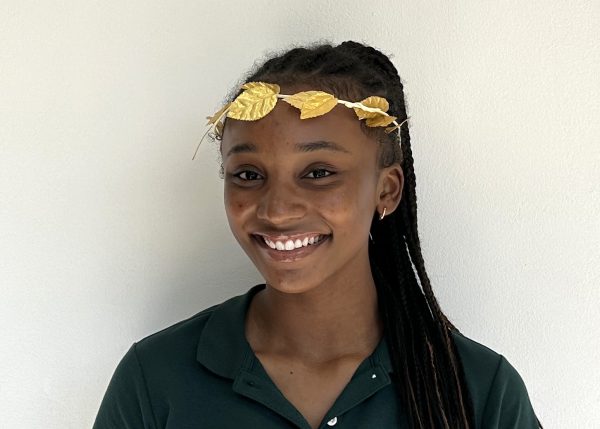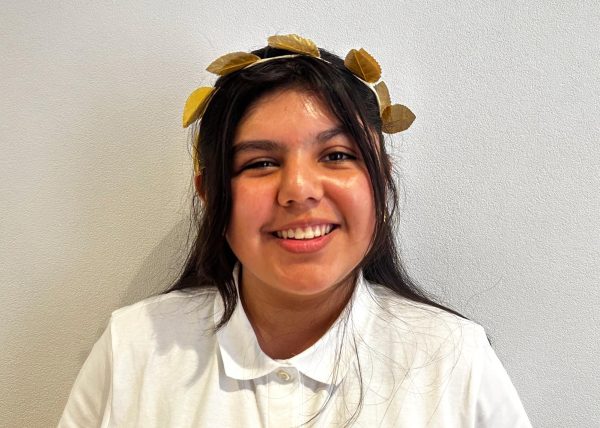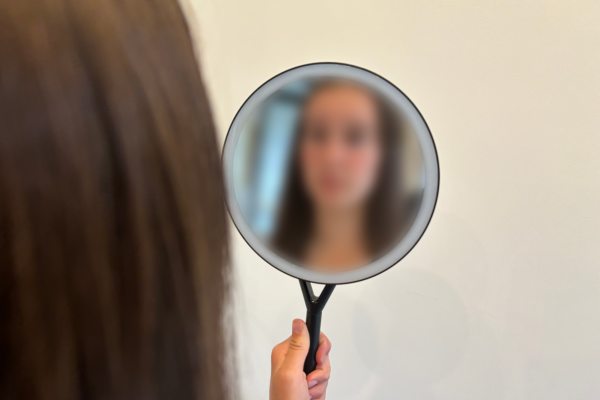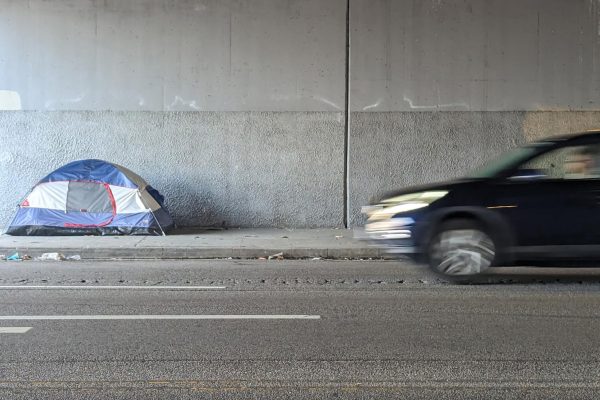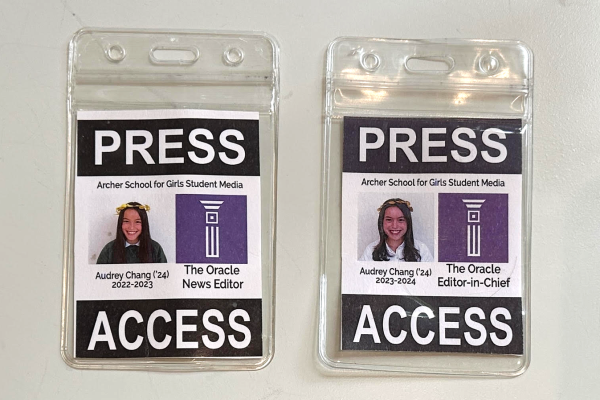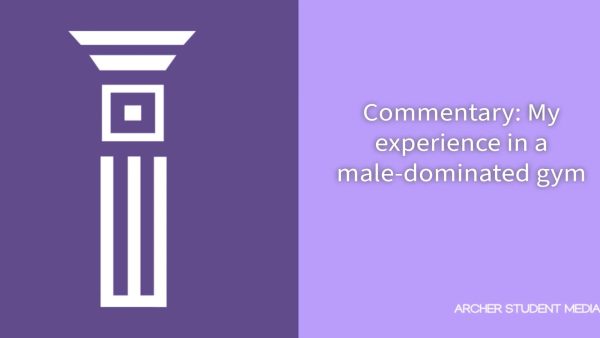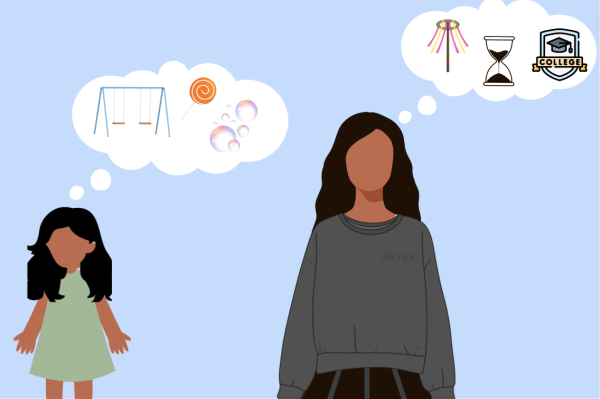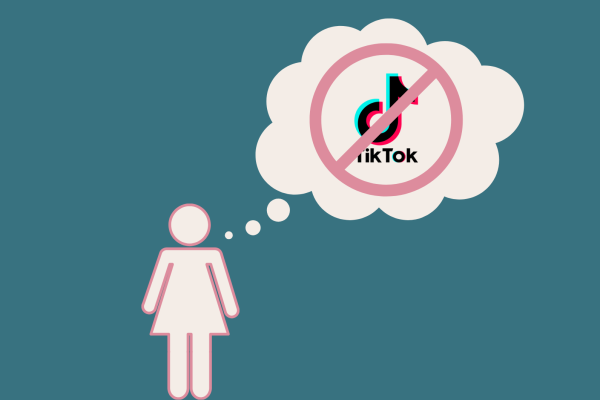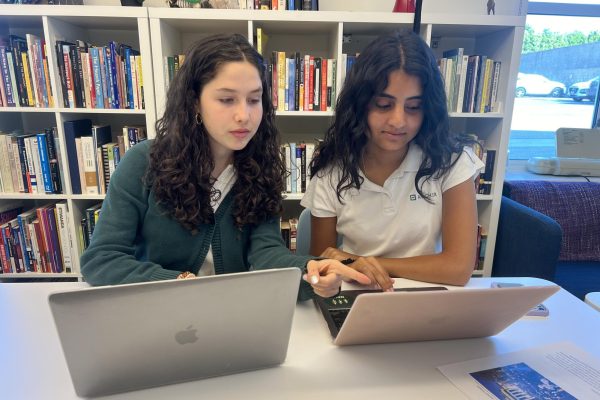Op-Ed: Is it because I’m Black?
Photo credit: Maia Alvarez
Sophomore Sydney Curry wrote an opinion piece for her 10th grade English class about her experience being Black at a predominantly white school and the importance of affirming Black students’ value in their existence. (Graphic Illustration by Maia Alvarez)
May 27, 2023
By opting for an opportune West L.A. private school, my worry about receiving a “quality education” vanished, and I believed I’d escaped the shortcomings of the public school system.
What was unforeseen for the 10-year-old Black girl applying to middle schools were the mental and emotional effects that came with an institution like this, specifically as a student of color. Underlying messages from those around me led to persistent feelings that somehow my achievements were tied to my race and left me feeling responsible for representing all Black people.
As a sixth grader, the prospect of being featured on my school’s Instagram was exciting. It validated my community involvement and successes and encouraged my interests. Ultimately, through further investigation, I noticed a trend: I’d be the only Black student shown in a few posts, and in groups, my presence always seemed to complete the perfect display of “diversity.”
Naively, I continued to smile hard, pose and morph into what I believed was the “perfect Archer girl.” I even learned to perfect my “ambassador voice”; bubbly, different in cadence and free of slang. Visitors told me how “articulate” and “mature” I sounded, though consequently, my friends and family joked about me becoming “whitewashed.”
By seventh grade, my excitement subsided. With a new Black sixth grader to fill my place, I began to feel disposable. Moreover, I developed the mindset that my sole purpose on campus was a display of diversity. Questions like, “Did I only get into Archer because I’m Black?” or, “Is my purpose here to fill a quota?” arose.
These thoughts neglected the work I put in when applying, and the work I did to prove I deserved my place. My experience was a classic case of imposter syndrome, “that gnawing feeling of self-doubt and incompetence.”
Ninth grade was a total 180º. Though I still loved being an ambassador and voiced my opinion when interviewed, I no longer wanted to be photographed or a part of random group photos. It became a running joke amongst my mostly POC friend group to hide from the cameras. To put it simply, I could no longer be Miss Black Ambitious, Joyful.
The problem became that by shying away from the camera, prospective families saw one less Black student, and I was slowly erasing myself from the Archer community. Frankly, it was counterproductive to complain about a lack of diversity within my school while I potentially deterred others like me from coming.
This internal struggle is not Archer-specific. Students of color are subliminally told their value is not found in their existence, but in what they can do for their institutions. Like sixth-grade me, they can choose to assimilate into white culture but risk being told they “act white.” Conversely, if they choose not to, they may face being called “too Black,” inviting another set of stereotypes to combat.
This problem doesn’t come with a quick fix, and truthfully, I don’t know how to solve it. I do know it starts with affirming Black students and intentionally reminding them their value is not in their utility, but simply in their being.




